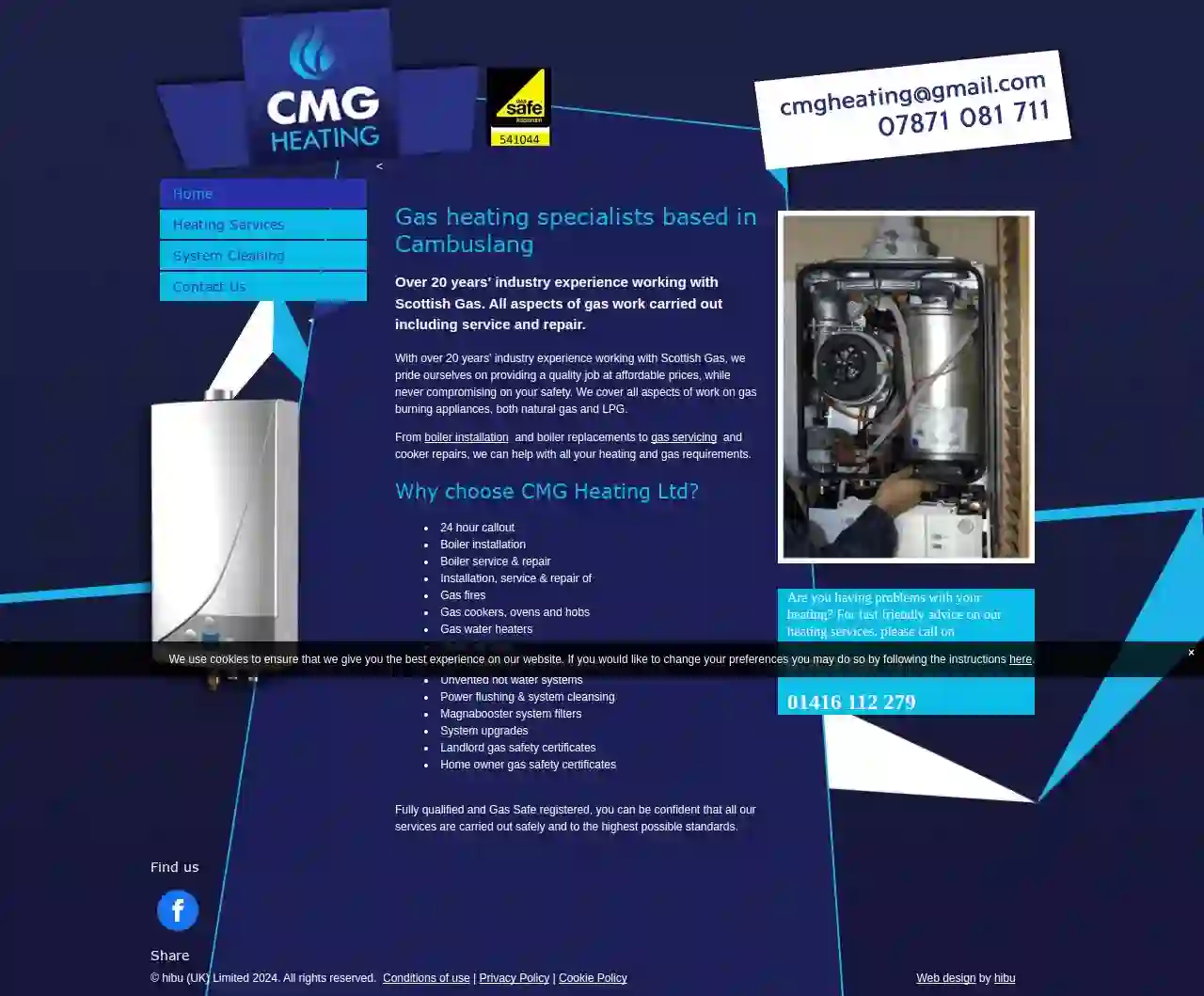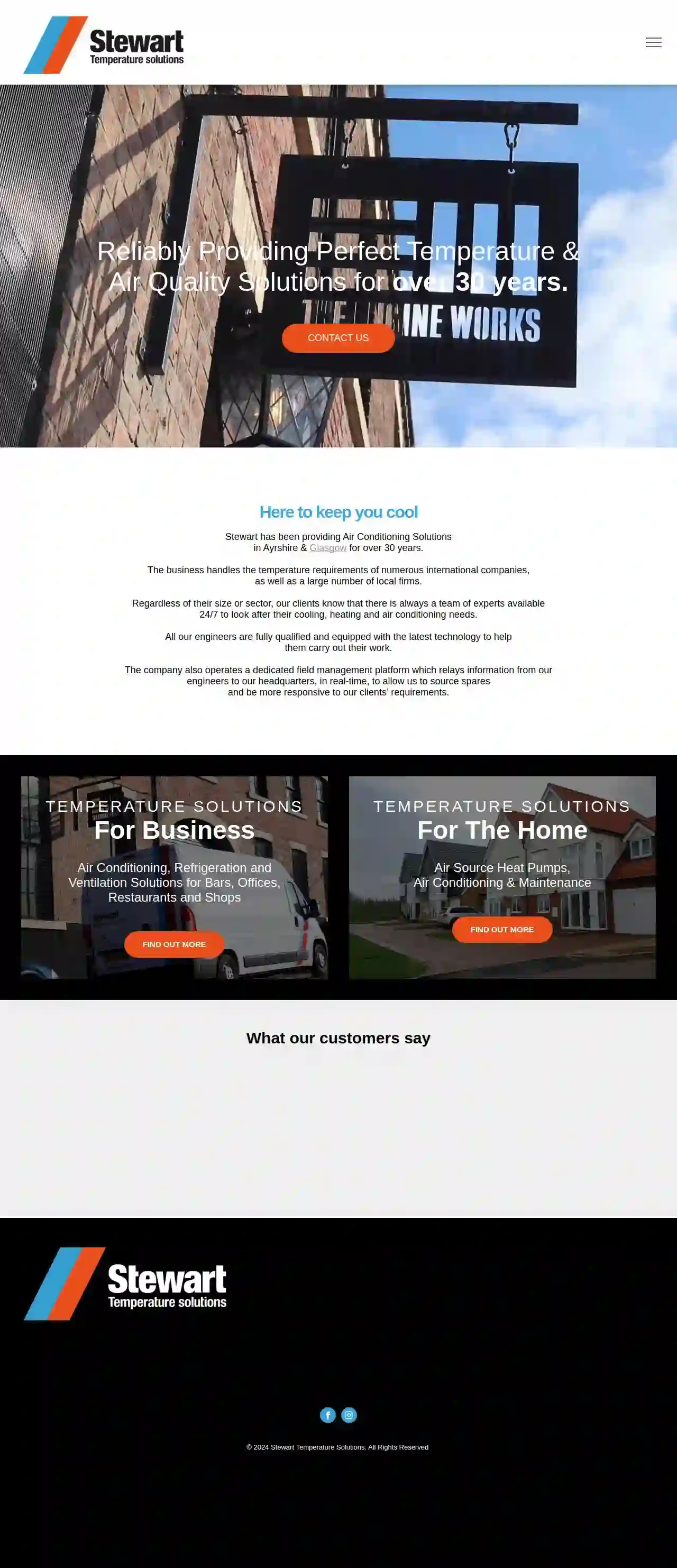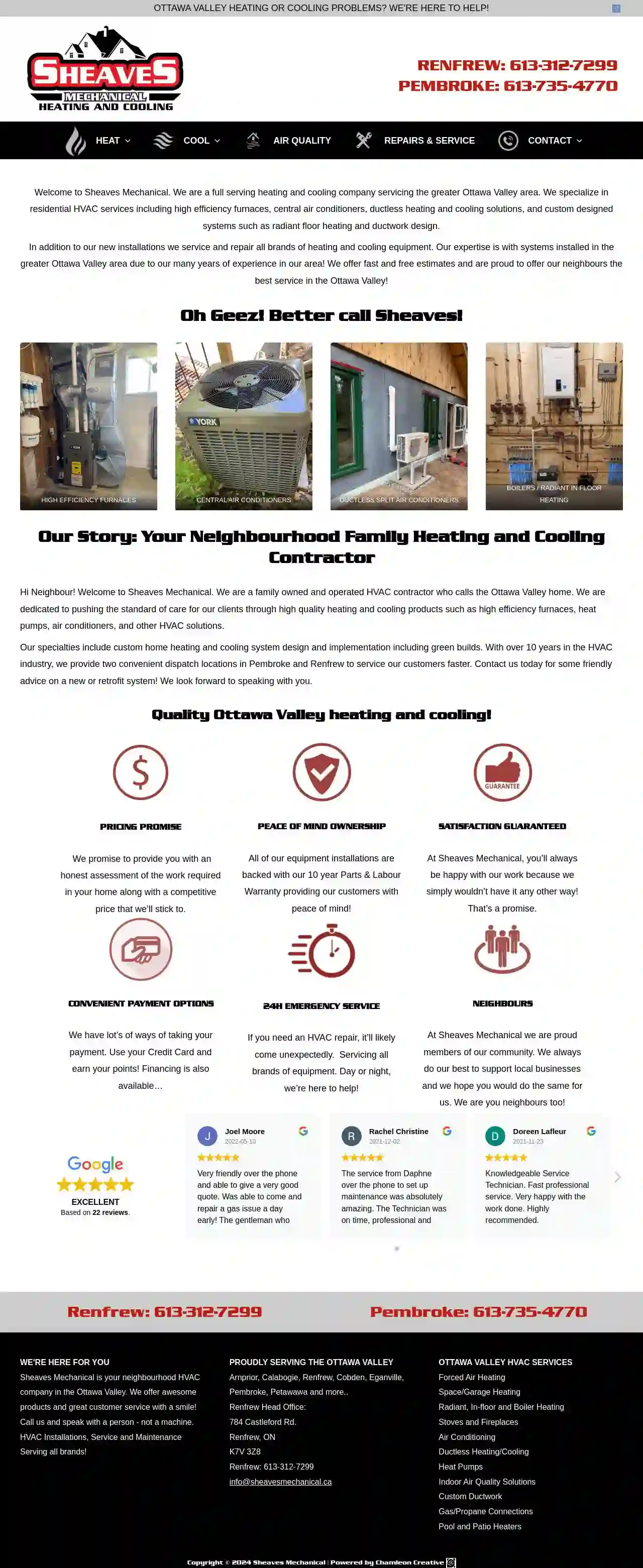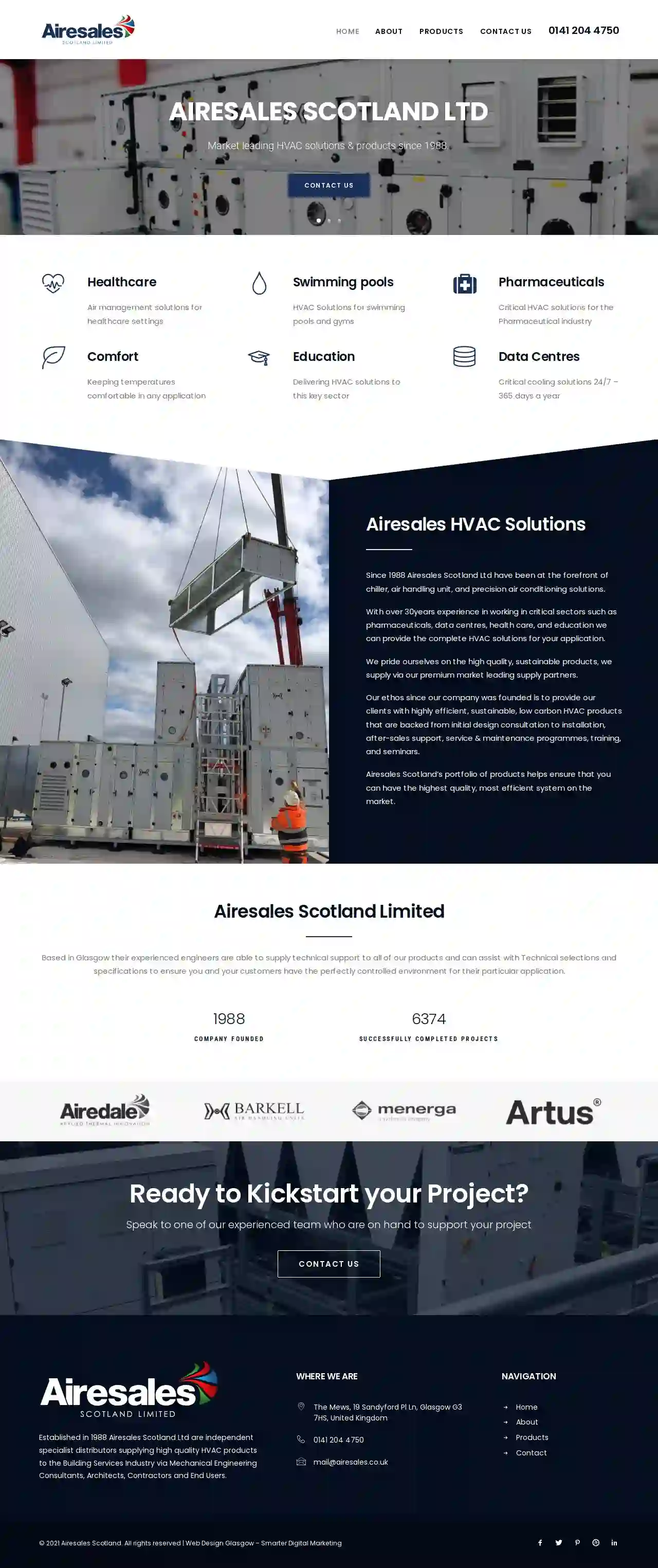Commercial HVAC Cumnock
Find Business HVAC in Cumnock
Receive 3 FREE Commercial HVAC quotes for your project today! Compare profiles, reviews, accreditations, portfolio, etc... and choose the best offer.

Glasgow Boiler Installations
521 reviews2/3 31 Queen Elizabeth Gardens, Suite B, Glasgow, G5 0UH, GBGlasgow Boiler Installations is a leading provider of boiler services in Glasgow and surrounding areas. We offer a comprehensive range of services, including boiler replacement, repair, servicing, and installation. Our team of experienced and qualified engineers is dedicated to providing our customers with the highest quality of service at competitive prices. We are fully accredited and insured, and we are committed to providing our customers with peace of mind.
- Services
- Why Us?
- Accreditations
- Gallery
Get Quote
RPW I Underfloor Heating, MLCP and Heat Pump Supplier
4.86 reviews24 McDowall Street, Paisley, PA3 2NBT, GBFounded in December of 2011 and based in Glasgow, UK, Renewable Products Warehouse is a heating equipment supplier, with a speciality in supplying water based underfloor heating systems, air source heat pumps and multilayer press plumbing solutions to the UK.Backed by a team of experienced engineers who have been at the forefront of the UK underfloor heating market since 1997, we are constantly striving to innovate and introduce simple and yet cost effective plumbing and heating solutions to the UK consumers.
- Services
- Why Us?
- Gallery
Get Quote
CMG Heating Ltd
4.69 reviews11 Mackintosh Court, Glasgow, G72 8SR, GBCMG Heating Ltd is a gas heating specialist based in Cambuslang, Scotland, with over 20 years of experience working with Scottish Gas. We pride ourselves on providing quality work at affordable prices while prioritizing safety. Our team covers all aspects of gas work, including service and repair for both natural gas and LPG appliances. From boiler installations and replacements to gas servicing and cooker repairs, we can handle all your heating and gas needs. Why choose CMG Heating Ltd? * 24-hour callout service * Boiler installation * Boiler service & repair * Installation, service & repair of gas fires, cookers, ovens, hobs, water heaters, warm air units * LPG installations and appliances * Unvented hot water systems * Power flushing & system cleansing * Magnabooster system filters * System upgrades * Landlord gas safety certificates * Home owner gas safety certificates Fully qualified and Gas Safe registered, you can trust us to deliver safe and high-quality services. If you're experiencing heating problems, contact us for fast and friendly advice on our heating services.
- Services
- Why Us?
- Accreditations
- Gallery
Get Quote
Stewart: Temperature Solutions
4.956 reviewsCambuslea Road, Unit 2 Cambuslea Industrial Estate, Ayr, KA8 9HT, GBReliably Providing Perfect Temperature & Air Quality Solutions for over 30 years. CONTACT US Here to keep you cool Stewart has been providing Air Conditioning Solutions in Ayrshire & Glasgow for over 30 years.The business handles the temperature requirements of numerous international companies, as well as a large number of local firms.Regardless of their size or sector, our clients know that there is always a team of experts available 24/7 to look after their cooling, heating and air conditioning needs.All our engineers are fully qualified and equipped with the latest technology to help them carry out their work.The company also operates a dedicated field management platform which relays information from our engineers to our headquarters, in real-time, to allow us to source spares and be more responsive to our clients’ requirements.
- Services
- Why Us?
- Testimonials
- Gallery
Get Quote
AV Gas Ltd
515 reviewsKilmarnock, KA1 1AA, GBAV Gas specialises in boiler repair, installation, and servicing in Ayrshire and Glasgow, taking care of your heating and hot water with skill and safety. Alexander is a fully qualified and gas-safe registered heating engineer with over 15 years of experience. His expertise lies in fault finding and repairs, and he takes extreme pride in providing safe and efficient solutions for your heating and hot water problems. AV Gas is committed to transparent service, so you'll always know the scope of work and associated costs upfront. AV Gas is located in Kilmarnock, Scotland, and serves the areas of Ayrshire and Glasgow.
- Services
- Why Us?
- Accreditations
- Our Team
- Gallery
Get Quote
Andrews Air Conditioning
Glasgow, GBAndrews Sykes is a global company with over 165 years of experience providing bespoke HVAC and pumping solutions. We have a unique history of innovation and expertise, dating back to 1857, and we continue to lead the way in the industry today. Our extensive fleet of equipment is available for hire nationwide, 24/7, ensuring that our customers always have access to the solutions they need, when they need them. We are committed to providing our customers with the highest quality products and services, and we are proud to be a trusted partner for businesses of all sizes.
- Services
- Why Us?
- Gallery
Get Quote
Sheaves Mechanical
4.730 reviews784 Castleford Rd., Renfrew, K7V 3Z8, GBSheaves Mechanical is a family owned and operated HVAC contractor serving the greater Ottawa Valley area. We are dedicated to providing high quality heating and cooling products and services, including high efficiency furnaces, heat pumps, air conditioners, and other HVAC solutions. Our specialties include custom home heating and cooling system design and implementation, including green builds. With over 10 years in the HVAC industry, we provide two convenient dispatch locations in Pembroke and Renfrew to service our customers faster. We offer fast and free estimates and are proud to offer our neighbours the best service in the Ottawa Valley!
- Services
- Why Us?
- Our Team
- Testimonials
- Gallery
Get Quote
Home Heating Installations
522 reviewsBerryknowe Cottage, Tintock, Kirkintilloch, G66 2TA, GBWe are a small, second generation family heating company, established in Glasgow for over 30 years. We specialise in new boiler installations, boiler repairs, central heating installations and central heating repairs. Our engineers have a minimum of 18 years experience, are fully qualified and will always arrive on site with a friendly, helpful and professional attitude. Your satisfaction and peace of mind is our goal on every visit. When you meet our team, you'll see why families and home-owners have come back to us over and over again. As well as being highly qualified, we also carry £5m public liability insurance, our engineers have all undertaken an enhanced CRB check, and for extra peace of mind we can be found on the Gas Safe website (Registration 228313). You can have complete confidence, we are the experts you can rely on. Our job is to make sure you are comfortable, warm and safe in your home with our heating services. We offer a range of plumbing and heating services, working on all types of systems, specialising in a range of different manufacturers appliances.
- Services
- Why Us?
- Accreditations
- Gallery
Get Quote
HVAC FM Recruitment
Glasgow, GBAward Winning HVAC & Facilities Management Recruitment Agency We deliver value to our customers UK USA With an enviable blue chip client base and a substantial database of relevant candidates, it's no wonder we're a market leader in FM Recruitment. We have over 30 years’ experience supplying quality candidates to the Building Maintenance and Facilities Management sectors. We offer a simple, fast and efficient recruitment solution for Permanent, Temporary and Contract roles throughout the UK, USA and APAC Region. With a strong and loyal client base and a database of over 100,000 relevant and highly-skilled engineers, managers, administrators and associated support staff, we're the obvious first choice when looking to recruit.
- Services
- Why Us?
- Testimonials
- Gallery
Get Quote
Airesales (Scotland)
The Mews, 19 Sandyford Pl Ln, Glasgow, G3 7HS, GBAiresales Scotland Ltd is a market leading HVAC solutions and products provider since 1988. With over 30 years of experience in working in critical sectors such as pharmaceuticals, data centres, healthcare, and education, we can provide complete HVAC solutions for your application. We pride ourselves on high-quality, sustainable products supplied via our premium market-leading supply partners. Our ethos is to provide clients with highly efficient, sustainable, low-carbon HVAC products backed from initial design consultation to installation, after-sales support, service & maintenance programmes, training, and seminars. Our portfolio of products ensures you can have the highest quality, most efficient system on the market. Established in 1988, Airesales Scotland Ltd is an independent specialist distributor supplying high-quality HVAC products to the Building Services Industry via Mechanical Engineering Consultants, Architects, Contractors, and End Users.
- Services
- Why Us?
- Gallery
Get Quote
Over 12,692+ HVAC Companies onboarded
Our HVAC experts operate in Cumnock & beyond!
HVACCompaniesHub has curated and vetted the Best HVAC Companies in and around Cumnock. Find a top & reliable pro today.
Frequently Asked Questions about Commercial HVAC
- Experience: Choose a contractor with extensive experience in commercial HVAC projects. Check how long they've been in business and their portfolio of past projects.
- Licensing and Insurance: Verify licenses, insurance (liability and workers' compensation), and bonding.
- Certifications: Look for certifications such as NATE (North American Technician Excellence) which indicate a high level of technical competency.
- Reputation: Check for online reviews and ratings on sites like Google, Yelp, and the Better Business Bureau.
- References: Request references from past clients and follow up to learn about their experiences.
How do I find a reputable commercial HVAC contractor?
What is commissioning (Cx) for commercial HVAC?
What are the benefits of HVAC zoning for my business?
What is a rooftop unit (RTU)?
How do I find a reputable commercial HVAC contractor?
- Experience: Choose a contractor with extensive experience in commercial HVAC projects. Check how long they've been in business and their portfolio of past projects.
- Licensing and Insurance: Verify licenses, insurance (liability and workers' compensation), and bonding.
- Certifications: Look for certifications such as NATE (North American Technician Excellence) which indicate a high level of technical competency.
- Reputation: Check for online reviews and ratings on sites like Google, Yelp, and the Better Business Bureau.
- References: Don't hesitate to check their references.